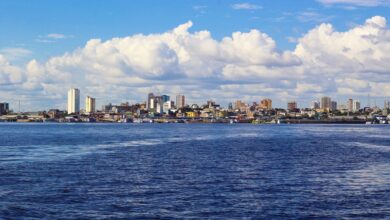UN Global Ocean Treaty Negotiations Failed
After two weeks of talks, the participants who met at the United Nations headquarters in New York failed to reach an agreement on the Global Ocean Treaty

Photo: Pexels
LatinAmerican Post | María Fernanda Ramírez Ramos
Listen to this article
Leer en español: Fracasaron las negociaciones del Tratado Global de los Océanos de la ONU
On August 26, the Intergovernmental Conference (IGC5) for international waters ended. This event was supposed to be the final phase of negotiations for a global treaty to preserve the oceans. In particular, the treaty would seek to create agreements on the management of international waters. The goal was to ensure that 30% of the marine surface was protected by 2030. This is a figure that various experts have pointed out as the minimum necessary in the face of an environmental emergency. However, the Treaty never materialized, despite the fact that it is an urgent and highly relevant issue for the future of humanity.
The oceans are essential for life on earth. According to information from the World Bank, they absorb 90% of the excess heat caused by climate change. They also process about 23% of carbon dioxide emissions. Therefore, they are a natural resource that fulfills crucial functions for mitigating the effects of global warming. However, not only are they direct victims of climate change, which harms their ecosystems but they have also been highly polluted by man. In fact, it is estimated that if current consumption and production habits continue, in 2050 there will be more plastic than fish in the oceans.
We suggest you read: Wave Energy: Initiatives in the World to Take Advantage of the Waves of the Sea
On the other hand, this Treaty is valuable because it would allow the sustainable use of international waters to be more clearly regulated. That is, those that are outside the national jurisdiction of the countries. However, there are very sensitive issues, in which large economic interests are involved, such as marine mining, the exploitation of genetic resources, and the natural resources found in these waters.
For these reasons, it is necessary to have a new treaty that binds the countries and commits them to achieve more ambitious goals regarding the protection of the oceans. According to Green Peace, which has closely monitored this process, the countries of the High Ambition Coalition, which brings together 49 countries, did not fulfill their commitments and reached financing agreements. "As a result, unless ministers call an emergency meeting in 2022 to conclude negotiations, the High Ambition Coalition and others like the US have failed to deliver on their commitment to finalize a Treaty this year," the organization noted.
Another crucial point in this negotiation will be on climate justice so that developing countries also have participation and weight in the agreements. Likewise, the possible benefits of the research reach these countries. At this point, it should be noted that the Latin American countries did reach clear agreements on the need to protect the high seas. Gladys Martínez, executive director of the Inter-American Association for the Defense of the Environment (AIDA), spoke with EFE Verde and pointed out that Latin American countries have made a real commitment to increasing marine protected areas. An example is that this year Colombia and the Dominican Republic have already made the protection of 30% of their oceans a reality.
Martínez also assured the EFE Agency that "If in the next round the treaty finally manages to protect at least 30% of the waters of the high seas by 2030, there are many unknowns about what will happen to the remaining 70%. "If there are totally unprotected, totally deregulated, the treaty will have served little".




